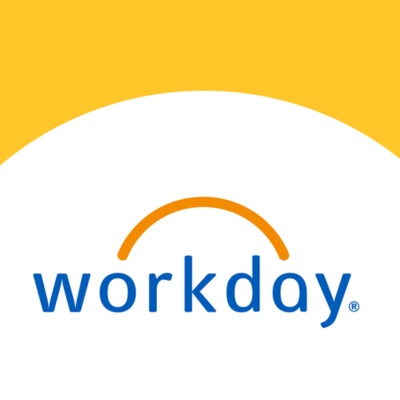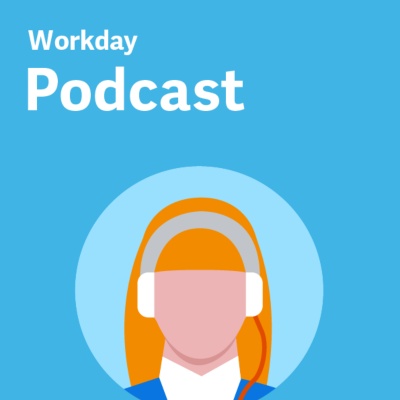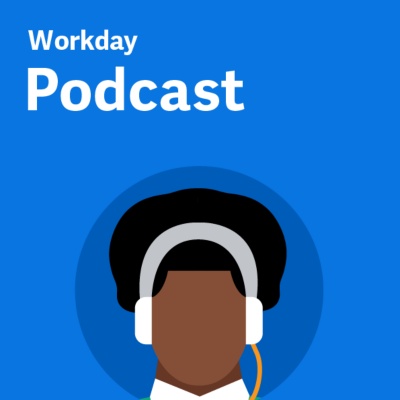
Building a Talent Philosophy That Works: Key Principles for Success
Exploring the core principles of a successful talent philosophy, highlighting the elements that drive employee engagement, performance, and growth.

Exploring the core principles of a successful talent philosophy, highlighting the elements that drive employee engagement, performance, and growth.

Members of the Workday channel management team discuss the best practices for working with managed service providers (MSPs) and the benefits of partnering with the right MSP for your business.

The insurance industry is facing a steep talent shortage. One way industry leaders can shore up a growing skills gap? By leveraging AI and machine learning (ML) to power automation and deliver insights to evolve workforces.

In the second installment of the Q&AI video series, Sayan Chakraborty, co-president of Workday, explains how artificial intelligence is changing the world of HR.

Learn how Workday AI in Manager Insights Hub helps people leaders become better at their jobs and create more opportunities for their employees’ growth and development.

In part two of our series on diversity, equity, inclusion, and accessibility (DEIA) in government, the FBI’s Scott McMillion and Workday’s Carin Taylor discuss how to attract, retain, and develop a workforce that’s truly diverse.

Nothing artificial about it—artificial intelligence is furthering advancements in HR technology, from improving efficiency to enhancing the employee experience. Discover how AI is reshaping HR and, in turn, how HR is putting AI to work.

Is your company bringing on more contractors, consultants, and gig workers? It might be time to consider how you’re managing your extended workforce.

We are happy that Workday is named a Leader in “The Forrester WaveTM: Human Capital Management, Q2 2023.” Read on to learn more about how our technology enables transformative HR to chart and navigate a new path.

Artificial intelligence (AI) and machine learning (ML) could prompt finance leaders to adopt automation more widely and rethink ways to provide value to the enterprise. A recent Fortune webcast highlighted what opportunities the new technologies might offer.

We’re honored to share that the 2023 PEAK Matrix® report from Everest Group features Workday VNDLY as a Leader and a Star Performer in the vendor management system (VMS) space.

What does workforce management mean amid a landscape of evolving employee expectations and the changing nature of work? In this article, we explore what organizations need to consider when identifying workforce management solutions that enable deploying the right talent at the right time.

CIOs and IT leaders have valuable insight into what’s needed to create an extended workforce talent strategy that powers the future of work.

What are the top priorities for CHROs in 2023? Insights from business and HR leaders indicate a future focused on creating a workplace that’s in step with the pace of change.

To help prepare for the jobs of tomorrow, it’s imperative for organizations to adopt a skills-based mindset driven by the power of artificial intelligence (AI) and machine learning (ML). Read more from Workday Co-Founder, Co-CEO, and Chair Aneel Bhusri.

In this episode of the Workday Podcast, Ben Eubanks, chief research officer at Lighthouse Research and Advisory, discusses what frontline workers need for an employee experience that fosters belonging and retention. His insights are part of a Workday-sponsored report, “Frontline Workers: How to Connect, Enable, and Support Them in the Modern Workplace.”

Stacey Harris, chief research officer and managing partner at Sapient Insights Group, shares how workforce trends are shaping strategic priorities for human resources professionals.

What may seem like a tipping point in the labor market has, in reality, always been a constant: change. Navigating this change in the moment requires a strong partnership between operational and HR leaders.

We’ve designed our skills-based people strategy to target three primary personas—individual contributors, people leaders, and organization leaders—who we feel best represent the makeup of our workforce. Here’s how our vision will play out.

By taking a skills-first approach to job roles, organizations can unlock much more agility, ingenuity, and performance in their workforces and create more inclusive job and career advancement opportunities.